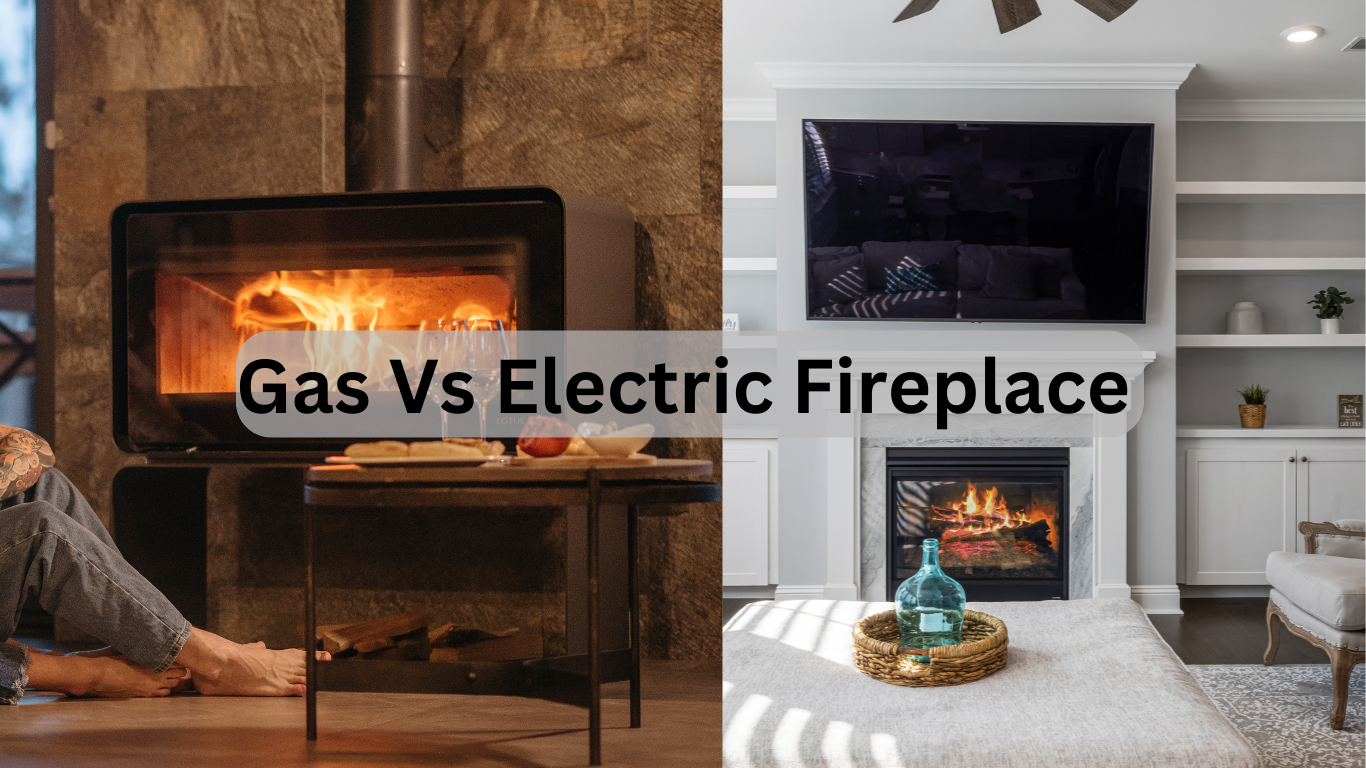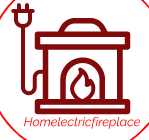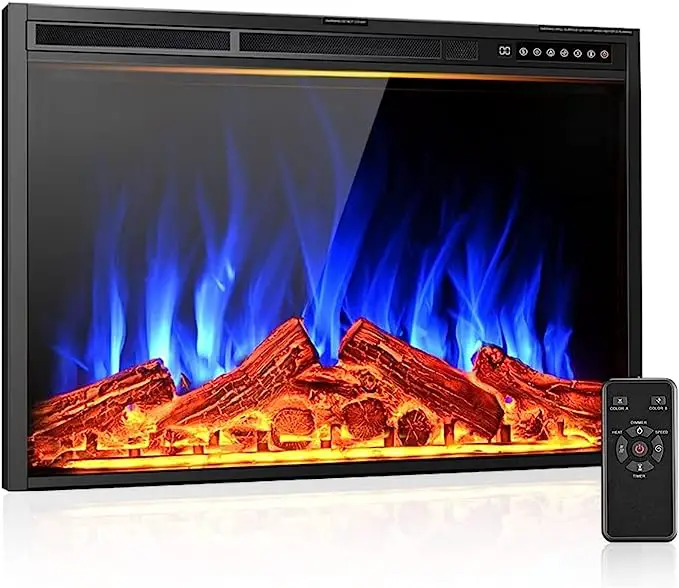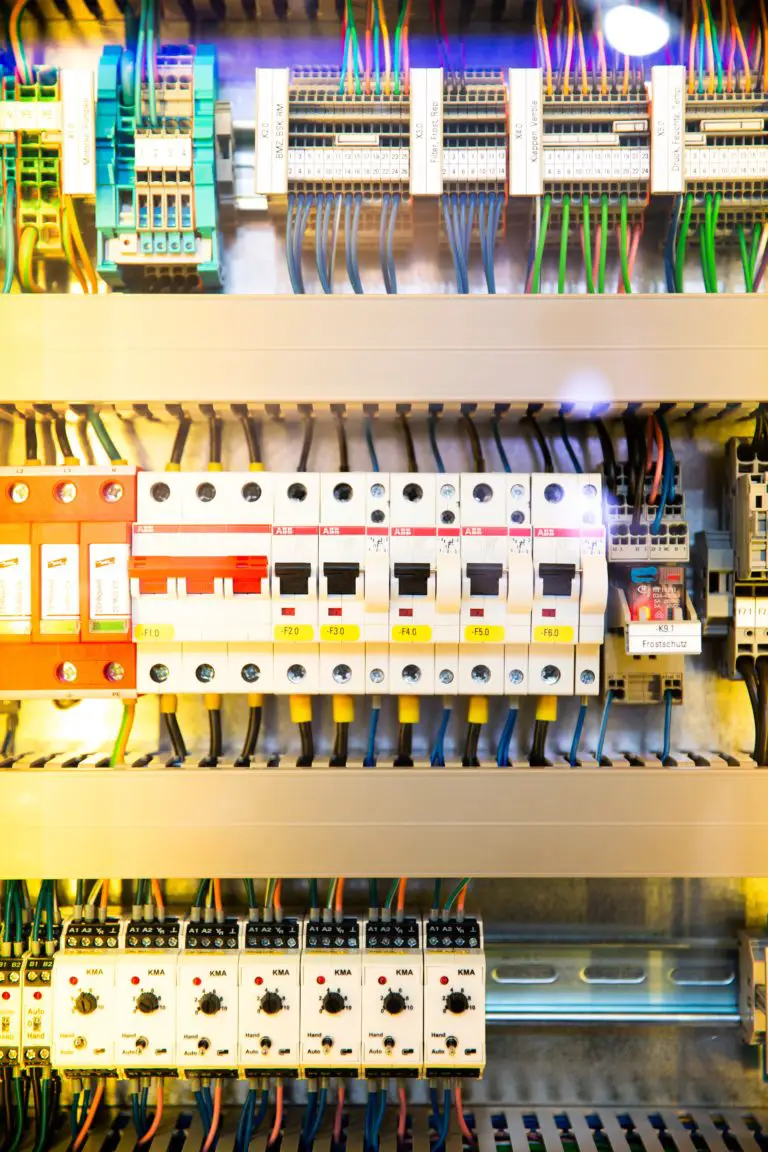Gas Vs Electric Fireplace; Which is Better?
This post may contain affiliate links which means I may receive a commission for purchases made through links.

While older homes usually have traditional wood-burning fireplaces, most modern homes are leaning towards electric or gas fireplaces. This is because gas and electric fireplaces are more efficient, affordable, cleaner, and have low maintenance requirements than their wood-burning counterparts. In fact, some homeowners are even converting their wood-burning fireplaces to electric or gas models. More importantly, this upgrade is a great way to increase your home’s value since gas or electric fireplaces are more appealing.
Another notable benefit of gas and electric fireplaces is that both can have a great heat output while imitating the visual aesthetics of the real thing. But since you can’t have both in your home, you have to choose one. Simply put, you’ve to ask yourself; between gas Vs electric fireplace; which is better?
Well, read on to find out the best electric fireplace option for your home as we look at some of their notable differences and features!
What is a Gas Fireplace?
As the name suggests, a gas fireplace uses gas, usually propane or natural gas, instead of wood as its fuel source for heating a room. The main benefit of using gas as an alternative to wood is that it’s quite efficient and heats the space quickly as it offers a mix of warm air and radiant heat within the room.
That aside, gas fireplaces can be categorized into 3 groups;
-
Inbuilt gas fireplaces
An inbuilt gas fireplace is the most common and popular type of fireplace. All thanks to its cost-effectiveness as it doesn’t need a firebox or chimney during installation. More importantly, this is the type of gas fireplace we’ll be focusing on in this post.
-
Gas fireplace inserts
As the name implies, a fireplace insert is installed inside an existing fireplace. In most cases, these types of gas fireplaces are used to convert a wood-burning model into a unit that strictly runs on gas.
-
Gas fireplace log sets
A gas fireplace log set is made by adding a burner to a wood-burning fireplace. In return, you can turn on the natural gas/ propane and light a pile of ceramic logs. On the downside, this type of gas fireplace doesn’t generate heat as well as the other gas models.
Benefits of gas fireplaces
- Gas fireplaces produce a real flame, adding ambiance to the room.
- It’s relatively easy to choose a gas fireplace that matches the aesthetics of your home since these units are available in a wide range of styles.
- A gas fireplace continues warming your house even when there is a power outage.
- Installing a gas fireplace is more cost-effective than other types of fireplaces.
- You can easily control the flame of a gas fireplace by reducing the gas flow.
Drawbacks of gas fireplaces
- Gas fireplaces must be installed by a competent and gas-safe registered engineer
- These fireplaces are a fire hazard since they produce a real flame
- The cost of installing a gas fireplace can be significantly high, especially if your home doesn’t already have an established gas line
- A gas fireplace has a risk of potential gas leak from the unit and its pipework.
What is an electric fireplace?
An electric fireplace doesn’t burn fuel at all and doesn’t generate a real flame. Instead, they use electricity to create the illusion of a realistic-looking flame, usually generated by the inner mechanism of the device. For instance, the visual flame effect can either be an LED bulb and water vapor, an LED bulb and a set of mirrors, or even a digital screen. In addition, some electric fireplaces are equipped with an infrared- or fan-forced heating element that produces heat just like a real fire would!
Benefits of electric fireplaces
- An electric fireplace doesn’t need a gas line, flue, chimney, or any type of ventilation system
- These fireplaces are relatively easy to install and set up, even for beginners
- Unlike wood-burning or gas fireplaces, electric fireplaces do not produce harmful fumes like carbon monoxide or smoke
- They’re cleaner, safer & easier to maintain than traditional fuel-burning fireplaces
- There are several types of electric fireplaces to choose from
- Modern electric fireplaces allow users to enjoy their visual effect all year round since they allow you to turn on the flame effect with and without the heater.
Drawbacks of electric fireplaces
- Most electric fireplaces do not produce enough heat to warm the entire house
- Electric fireplaces produce a fake flame.
- Compared to gas and wood-burning fireplaces, electric models are the most costly to run, especially in areas where electricity is more expensive than firewood and gas.
- More notably, you cannot use an electric fireplace when there is a power outage
Gas Vs Electric Fireplace: Major Differences
-
Cost
The cost of buying a new gas vs electric fireplace depends on various factors like the brand, size, model, and type of fireplace. Nonetheless, an electric fireplace is usually more costly than its gas counterpart.
To be precise, the best gas fireplaces cost between $2000 and $7500, depending on the style you choose to buy. For instance, a ducted gas fireplace costs about $2000, a ventless gas fireplace costs between $2300 and $6000, while a direct vent gas fireplace costs around $3500 – $7500.
In addition to buying the gas fireplace, you need to hire a professional engineer to install it for you, which can cost about $2300 – $10000. The installation cost will vary depending on the labor cost in your area as well as the particular style of the fireplace.
On the other hand, the average cost of buying an electric fireplace is somewhere between $250 and $6200, depending on the style of the unit. For instance, most freestanding electric fireplaces cost about $250 – $650, while dual-sided electric fireplaces can cost up to $6200.
As for the installation costs, expect to pay about $150 – $300 on average to have a professional install an electric fireplace for you. Interestingly, most units don’t need professional installation as you can simply plug them into a standard wall outlet.
-
Installation: Gas vs electric fireplace
While both gas and electric fireplaces are easier to install than wood-burning fireplaces, electric models are the more convenient option for simple installation.
After all, most people in the US already have access to electricity in their homes and most electric fireplaces run on 110v – 220 V standard outlets. Therefore, you only need to plug the fireplace into a wall outlet and turn it on. However, some units may require additional installation steps like cutting out the area you intend to install the fireplace, installing the mantel, wiring the unit, and installing a dedicated circuit near the unit.
In comparison, gas fireplaces are a bit difficult to install, especially for beginners since they require a small vent and gas line. So, if your home doesn’t have access to a natural gas line, installing this type of fireplace may not be a feasible option. Moreover, some jurisdictions are restricting or burning the usage of natural gas and other fuel products in new constructions, making electric fireplaces the only option in those areas.
-
Running Cost: Gas vs electric fireplace
The running cost is another important factor to consider when comparing gas vs electric fireplaces, even though both models have low operating costs.
Surprisingly, gas fireplaces are usually cheaper to run than electric fireplaces, despite gas being more costly than electricity. This is because gas fireplaces heat a larger area much faster compared to their electric counterparts.
However, this will certainly vary depending on your location. Besides, the natural average cost of electricity is about 13 cents per kWh (kilowatt-hour), while the natural average cost of natural gas is around $1.22 per 100,000 BTUs.
Therefore, the cost of operating a 1.5 kWh electric fireplace that generates 5000 BTUs will be about 19.5 cents per hour, while operating a 25000 BTU gas fireplace will cost you up to 30.5 cents per hour. So, although you’ll have to pay more to run your gas fireplace per hour, you may not have to run it for long as it heats the room much quicker than an electric unit.
-
Maintenance
Although gas fireplaces are low maintenance compared to traditional wood-burning fireplaces, they require some annual maintenance. For instance, the vent should be inspected annually and cleaned as needed. In addition, you must regularly check the valves for leaks and ensure the entire system is operating properly.
On the other hand, electric fireplaces do not require regular maintenance since they don’t burn fuel products. However, they require some simple maintenance tasks like inspecting the wiring and replacing burnt-out bulbs.
-
Safety
Both electric and gas fireplaces are potential fire hazards since they generate heat. However, electric fireplaces are much safer than their gas counterparts for various reasons.
First, gas fireplaces emit harmful fumes like carbon monoxide, especially if they’re not installed or maintained properly. Secondly, these units can cause moisture buildup if the house doesn’t have adequate ventilation. Lastly, they produce real flames which can lead to a fire accident and their glass doors become hot to touch.
In comparison, electric fireplaces do not need a ventilation system as they don’t generate harmful emissions. However, these units pose a risk of electric fire if their wiring becomes faulty or damaged. Other than that, electric fireplaces are much safer than gas units, making them an excellent choice if you’ve pets and small children in your home.
-
Heat Output: Gas vs electric fireplace
Both gas and electric fireplaces produce heat immediately once they’re turned on. In terms of heat output, gas fireplaces usually generate about 7000 – 40000 BTUs, depending on the model and size of the unit. While 120V electric fireplaces can only emit 4000 – 5000 BTUs. As a result, gas fireplaces are ideal for heating large rooms due to their higher heating capacity. In addition, gas units heat the room faster than electric models.
-
Energy Efficiency: Gas vs electric fireplace
Most types of gas fireplaces are clean-burning and very energy efficient. For instance, a ventless gas fireplace burns an optimum temperature to reduce the production of moisture and carbon monoxide. More importantly, they convert most of the fuel energy into heat at an efficiency rate of about 70 – 90%.
Electric fireplaces, on the other hand, convert almost all electricity into heat, thus using less energy than their gas counterparts. Unfortunately, you may need a secondary heat source to heat the entire room because of their lower heating capacity.
-
Appearance & Ambiance
Over the past few years, electric fireplaces have made significant advancements in visual flame effects. However, these units do not produce a flame in the same way as gas or wood-burning fireplaces. Instead, most electric models project an image of a burning log or use hologram imaging and LED lighting to create a fake flame. Contrarily, gas fireplaces have a more realistic appearance since gas generates heat you can feel and a flame you can see.
As for the ambiance, gas fireplaces produce a real flame as well as a soothing crackling sound. While electric fireplaces only project an image of a burning log, mainly through LED lighting. Therefore, electric fireplaces do not provide the same ambiance as a wood-burning fireplace or an actual campfire. However, some electric fireplace models have crackling and popping sound effects to imitate the sounds of a real fire.
Which is better: Gas vs electric fireplace?
Installing a gas vs electric fireplace in your home is a great way to add heat and create a cozy ambiance in any room. However, each option has its benefits and drawbacks. As a result, you’ll discover that a particular option may be better for certain scenarios than the other. For that, it’s important to consider their differences as well as your preferences before settling on any option.
For instance, if you want a fireplace that provides a more traditional appearance, with real flames and imitates the function and appearance of a wood-burning fireplace, a gas unit is a good choice. But if you want a fireplace that costs less and requires minimal care & maintenance, electric fireplaces are superior to their gas counterparts.






